Join Cultural Samvaad’s WhatsApp community
The Preamble to the Constitution of India is referred to as the soul of this living document. The Constitution of India is the supreme law of the world’s largest democracy – an independent India. As an integral part of the Constitution, the Preamble captures the document’s lofty spirit and philosophy which reflect the ideals, resolves and aspirations of generations of Indians.
What is the text of the Preamble to the Constitution of India?
The Preamble to the Constitution of India as amended in the year 1976, reads as follows:
WE, THE PEOPLE OF INDIA, having solemnly resolved to constitute India into a
SOVEREIGN, SOCIALIST, SECULAR, DEMOCRATIC REPUBLIC
and to secure to all its citizens:
JUSTICE, social, economic and political;
LIBERTY of thought, expression, belief, faith and worship;
EQUALITY of status and opportunity;
and to promote among them all
FRATERNITY assuring the dignity of the individual and the unity and integrity of the Nation;
IN OUR CONSTITUENT ASSEMBLY this twentysixth day of November, 1949, do HEREBY
ADOPT, ENACT AND GIVE TO OURSELVES THIS CONSTITUTION.
Please Note: The words ‘SOCIALIST’, ‘SECULAR’, and ‘and integrity’ were added via the Constitution (42nd Amendment Act, 1976).
What is the source of the authority of the Constitution of India?
The first few magical words of the Preamble when read in conjunction with the last few words state – ‘We, the people of India… hereby adopt, enact and give to ourselves this Constitution.’ This profound declaration signifies that the Constitution derives its authority from India’s citizens and all power is vested in their hands.
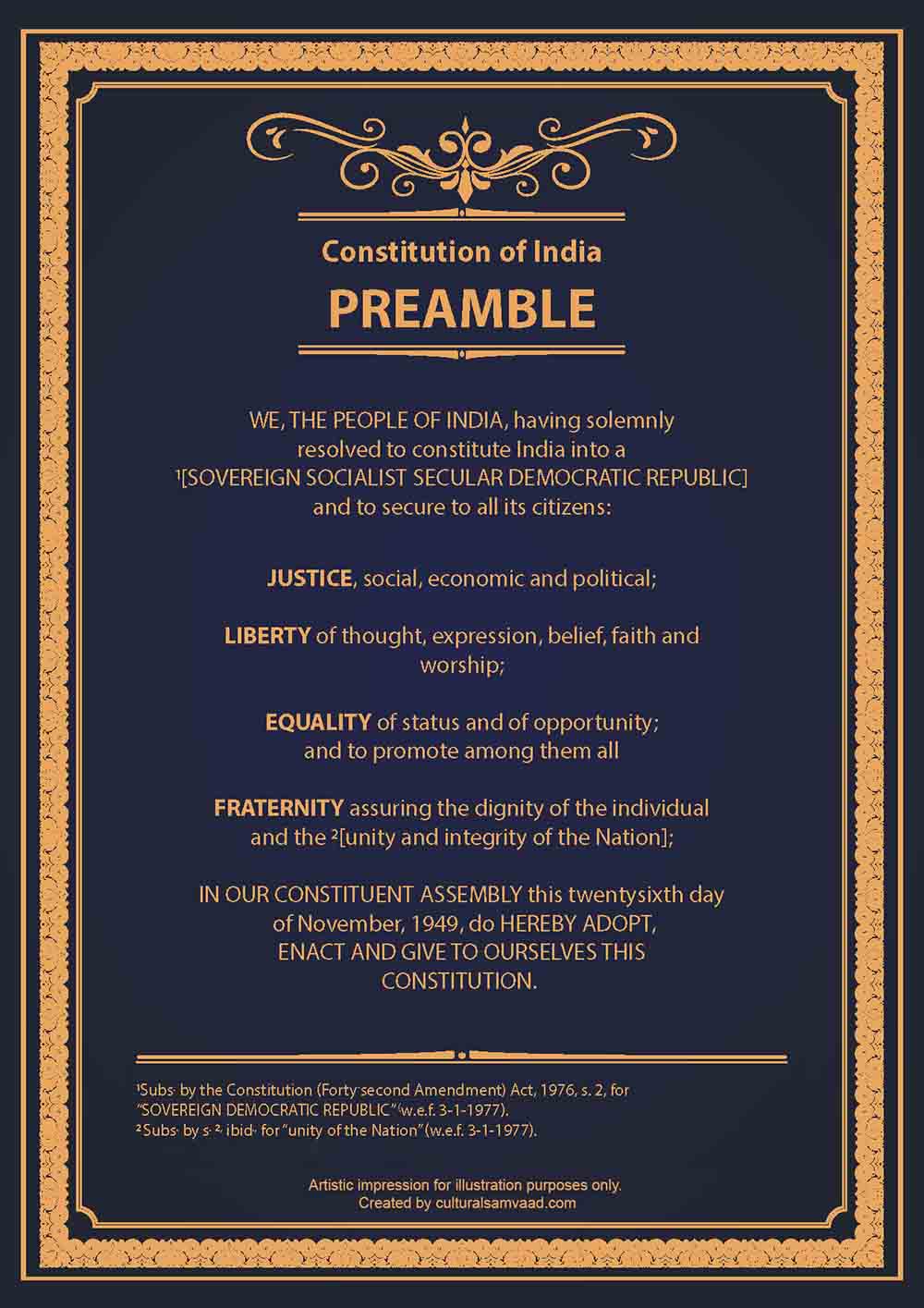
What is the nature of the Indian State?
The Preamble sets out the nature of the Indian state in unequivocal terms. We, her daughters and sons, have solemnly resolved to constitute India into a Sovereign, Socialist, Secular, Democratic, Republic. The words Socialist and Secular were added via the Constitution (42nd Amendment Act, 1976) and given their multiple connotations have been the subject of many debates.
India is a Sovereign state. She is independent and not subject to the control of any other State or external power. The State is free to conduct its external and internal affairs, protect its territorial integrity and legislate on any and every subject without interference.
India has Socialist aspirations. The government and people endeavour to build a welfare state which seeks to end poverty and inequality of opportunity and protects the interests of the underprivileged through policy making and public-private partnership. This does not imply that India accepts the model of state or communist socialism or discourages private initiative and ownership of economic resources.
India is Secular in ethos. The nation does not have a state religion, but her citizens are guaranteed the Right to freedom of religion. Every Indian is free to follow, practice and propagate any religion of her or his choice and manage its religious affairs in line with the eternal values of this ancient and pluralistic Bharatiya civilisation.
India is a Democratic state. The nation has a parliamentary system of democracy with universal adult franchise. All citizens who are above 18 years of age have the right to vote and elect their governments at all levels. The government is accountable to the people of India and is duty bound to function in accordance with the letter and the spirit of the Constitution.
India is a Republic. The head of the State – the President of India is indirectly elected by the citizens for a fixed term through a defined constitutional process. This position is not hereditary or available only to certain individuals by virtue of their birth as in the case of a Monarchy.
What are the goals and objectives of the Indian State?
The Preamble defines our aspirations for the India that we endeavour to build and provides a holistic framework for the functioning of the government and judiciary. We, the people of India, have resolved to secure to all our fellow citizens and by corollary our own selves – Justice, Liberty, Equality and to promote Fraternity among all of us.
Justice is the cornerstone of a civil society. The Preamble specifically mentions three dimensions of justice – social, economic and political.
Social justice includes the elimination of all forms of exploitation by law to build a social structure in which no citizen can be discriminated on the basis of caste, creed, colour, religion, gender or place of birth among others.
The idea of economic justice is to strive towards eradicating poverty, providing economic opportunities and catalysing creation and distribution of national wealth to empower the economically disadvantaged.
Political justice implies that every citizen has an equal right to participate in the country’s democracy without any prejudices.
Liberty of thought, expression, belief, faith and worship within reasonable constitutional limits entitles each Indian with the freedom to lead one’s life in a manner that one chooses.
Equality of status and opportunity empowers citizens to realise their potential and is secured by making illegal all discrimination among citizens by the State and social structure.
Fraternity assuring the dignity of the individual and the unity and integrity of the nation implies the feeling of harmony and oneness among all citizens of our diverse and plural country. It is our duty to keep our great nation together while ensuring that we preserve and mutually respect the dignity of every Indian.
The objectives of the Constitution as mentioned in the Preamble, establish beyond doubt that India promises not only a political democracy but also a social democracy. In the words of Dr. B. R. Ambedkar;
“Political democracy cannot last unless there lies at the base of it social democracy. What does social democracy mean? It means a way of life which recognises liberty, equality and fraternity which are not to be treated as separate items in a trinity. They form a union of trinity in the sense that to divorce one from the other is to defeat the very purpose of democracy. Liberty cannot be divorced from equality, equality cannot be divorced from liberty. Nor can liberty and equality be divorced from fraternity.”
The Preamble to the Constitution of India is our guiding light as we, the people of India work towards building a saare jahaan se achcha (सारे जहान से अच्छा) India, that is Bharat. Jai Hind. जय हिन्द!
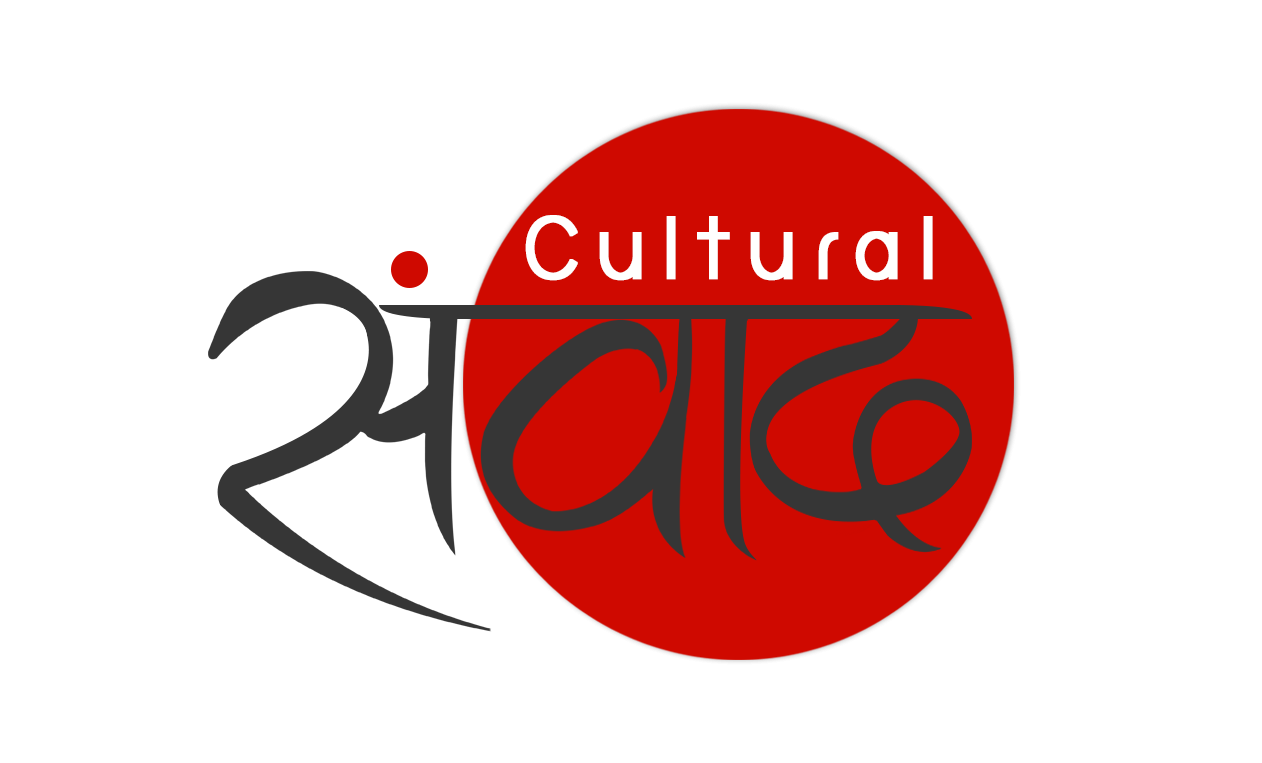

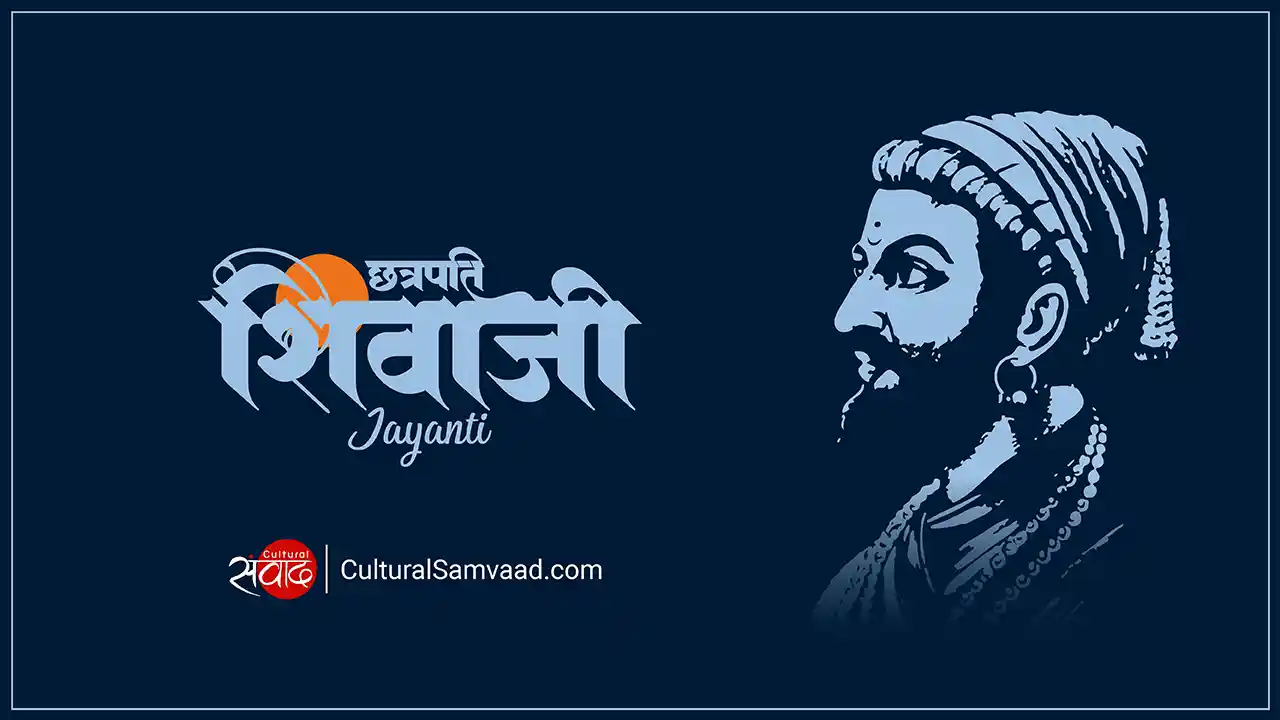
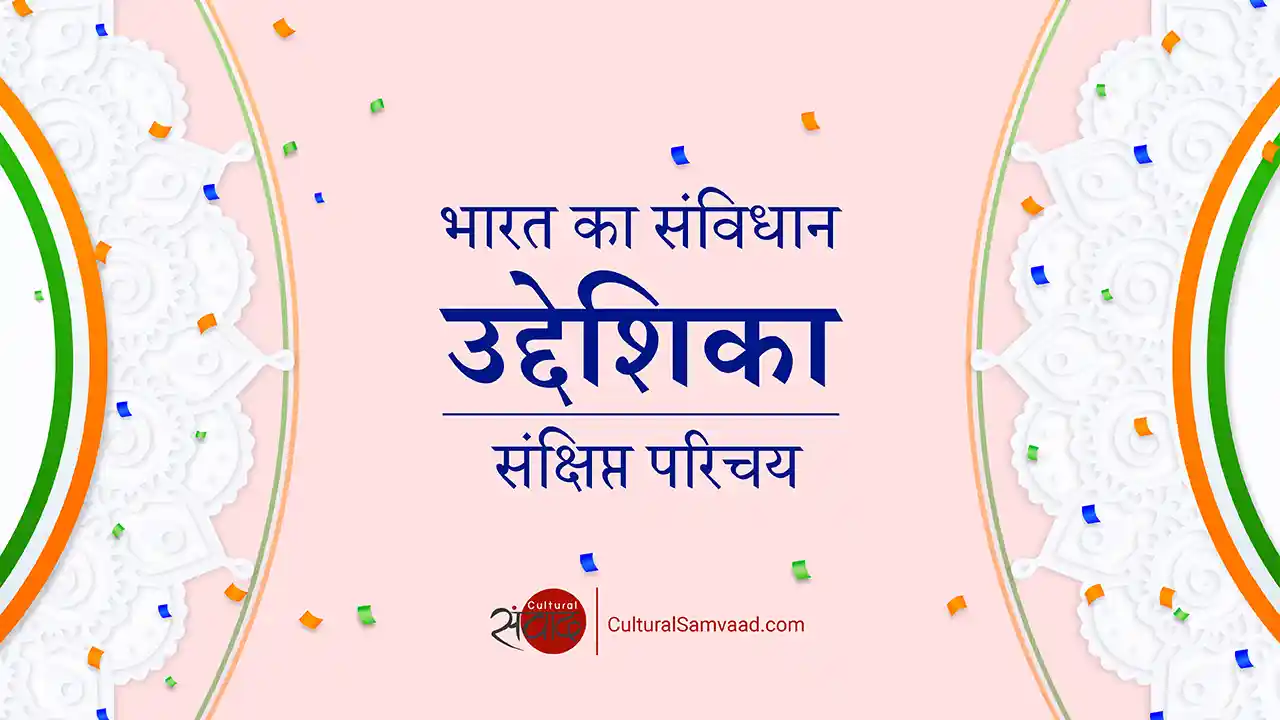
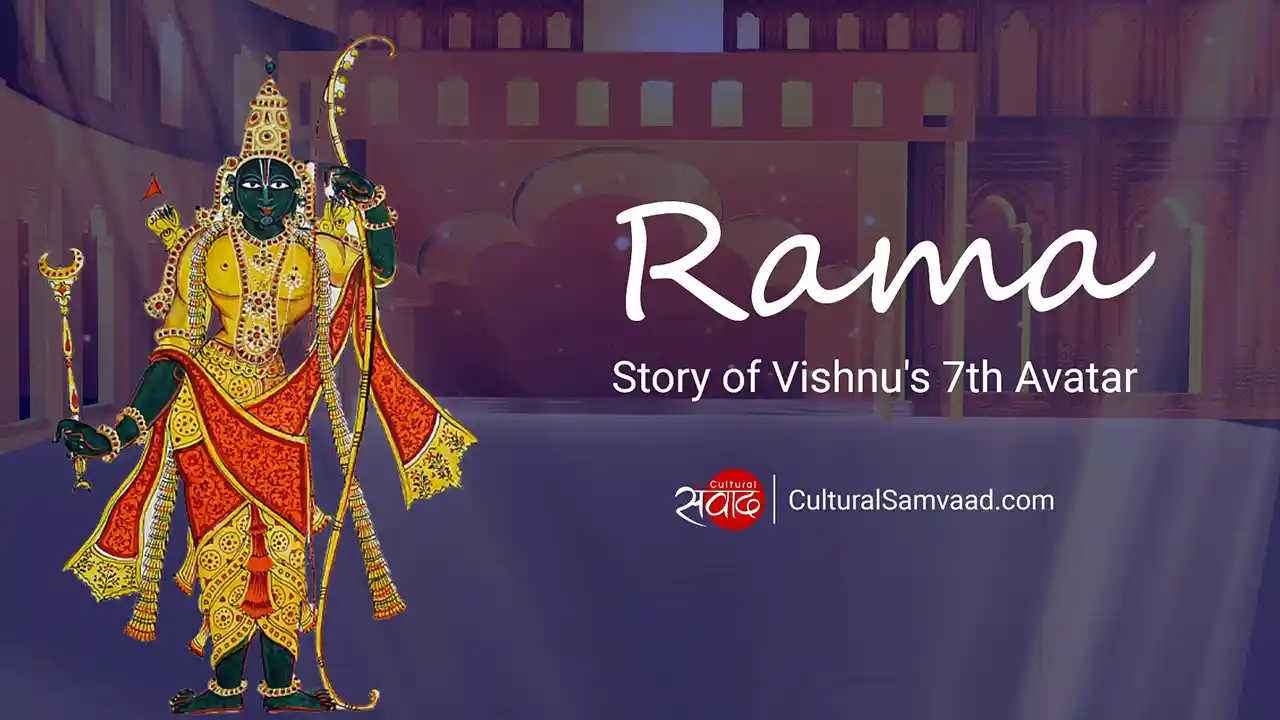
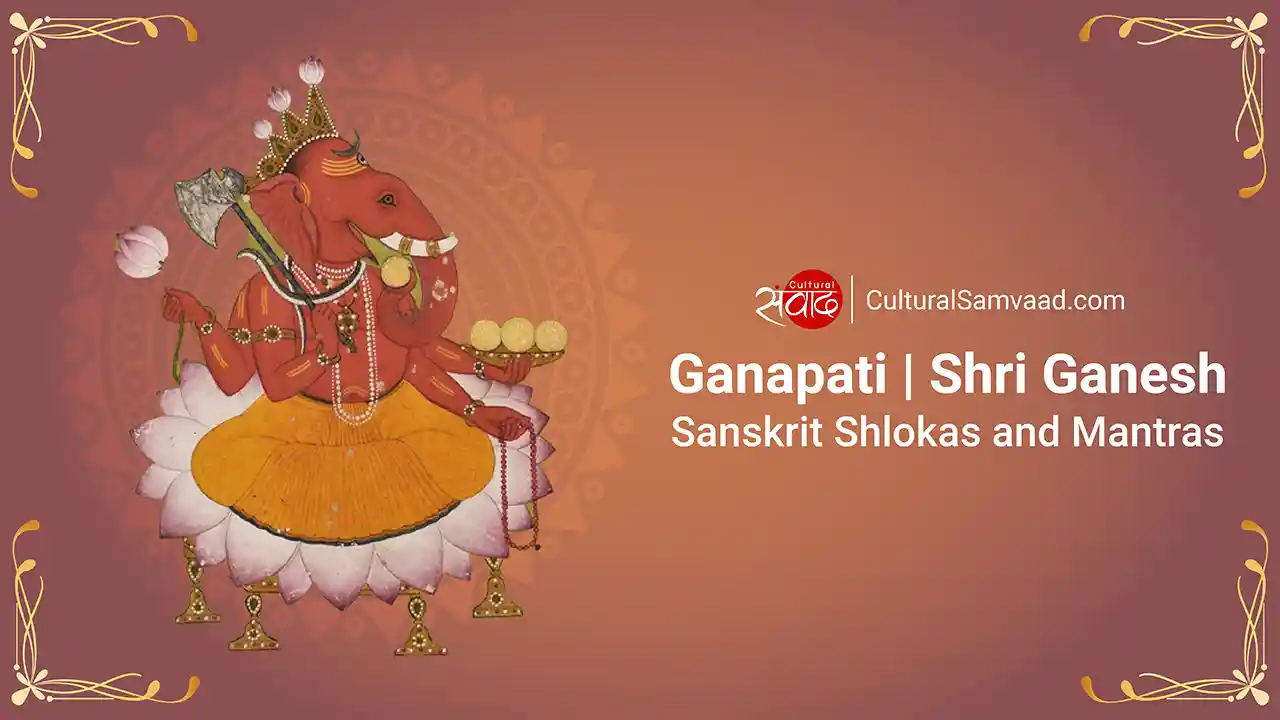
Add comment